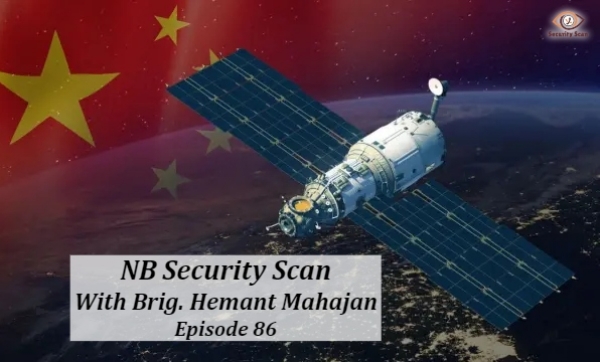News In Brief
Very strong relations with India; co-producing armored vehicles: US Defence Secretary Lloyd Austin at Shangri La Dialogue
At the Shangri La Dialogue in Singapore, US Defence Secretary Lloyd Austin praised the strong US-India relationship. He talked about advancements in co-producing armoured vehicles and fighter jet engines.

Countering Internal & External Security Challenges
Major Radhika Sen, born in Himachal Pradesh in 1993, is set to receive the UN Military Gender Advocate of the Year Award on May 30, coinciding with the International Day of UN Peacekeepers. She is the second Indian peacekeeper to receive this award, after Major Suman Gawani, who was honored in 2019 for her service with the UN mission in South Sudan. This prestigious award, established in 2016, recognizes the dedication of individual military peacekeepers in promoting gender equality across peacekeeping missions. It aligns with the principles of UN Security Council Resolution 1325 on women, peace, and security. The awardee is chosen from candidates nominated by force commanders and heads of missions from all peace operations, according to UN peacekeeping.
The Indian Navy requires a significant capacity boost to fulfill its role as a ‘net security provider’ in the Indian Ocean region.
Emerging Threats
India faces a medium-term challenge from the Chinese PLA Navy, which has increased its presence through regular patrols in the Indian Ocean. This heightened activity underscores the need for India to enhance its naval capabilities.
Project 75I Submarine Venture
After much deliberation, the Indian government is nearing a decision on the Rs 60,000-crore Project 75I submarine venture. This project involves evaluating tenders from two companies: one partnered with a Spanish firm and the other with a German one. A crucial technology under assessment is Air-Independent Propulsion (AIP), which allows conventional submarines to remain submerged for extended periods.
Strategic Partnerships
Under the Strategic Partnership Model, L&T has joined forces with the Spanish company Navantia, while Mazagon Dock Shipbuilders Ltd has teamed up with ThyssenKrupp Marine Systems. These partnerships aim to enhance India's submarine capabilities and address its strategic needs.
Urgency of Modernization
The urgency for advancing Project 75I has intensified due to recent developments. In April, the first of four AIP submarines built by China for Pakistan was commissioned. Pakistan already operates French AIP-equipped Agosta 90B submarines and has signed a deal with China for four additional AIP-equipped submarines, with four more to be built in Karachi.
Current Naval Capabilities
India currently has 17 conventional submarines, 11 of which are decades old, and two nuclear ballistic missile submarines dedicated to strategic deterrence. Besides the Project 75I submarines, India has considered developing nuclear-powered attack submarines, but this concept remains on the drawing board due to budget constraints.
To effectively counter regional threats and assert its role as a net security provider, the Indian Navy needs a substantial capacity boost, starting with the timely execution of Project 75I and further modernization efforts.
India must enhance its ability to defend against massed drone assaults, particularly in light of recent developments in the Middle East.
Changing Strategic Landscape
The strategic landscape of the Middle East has been significantly altered by the ongoing volley of attacks between Iran and Israel. On April 1st, an Israeli attack on the Iranian consulate in Damascus resulted in the deaths of seven Islamic Revolutionary Guard Corps commanders. Two weeks later, Iran retaliated with a barrage of drones, almost all of which were intercepted. Israel swiftly responded with its own missile and drone attack on an Iranian airbase.
Regional Security Implications
These exchanges are poised to shape regional security and politics in the Middle East for the foreseeable future. A pressing question arises: is the world ready for another war amid high tensions in West Asia and ongoing conflict between Russia and Ukraine? This situation mirrors the Cold War era, with the Soviet Union backing the Arab front and the United States supporting Israel. Today, a similar trend emerges with Iran and Russia closely allied, while Israel receives backing from the US. This dynamic extends beyond the Iran-Israel relationship, involving broader regional and global power influences, thereby complicating matters.
India's Defense Strategy
For India, it is imperative to integrate diverse defense systems into its overall air defense architecture. This integration will create a robust and layered defense against drone threats, whether they arise from conflicts in the Middle East or elsewhere. By implementing such measures, India can ensure comprehensive protection against drone incursions, bolstering its national security in an increasingly complex geopolitical landscape.

No comments:
Post a Comment